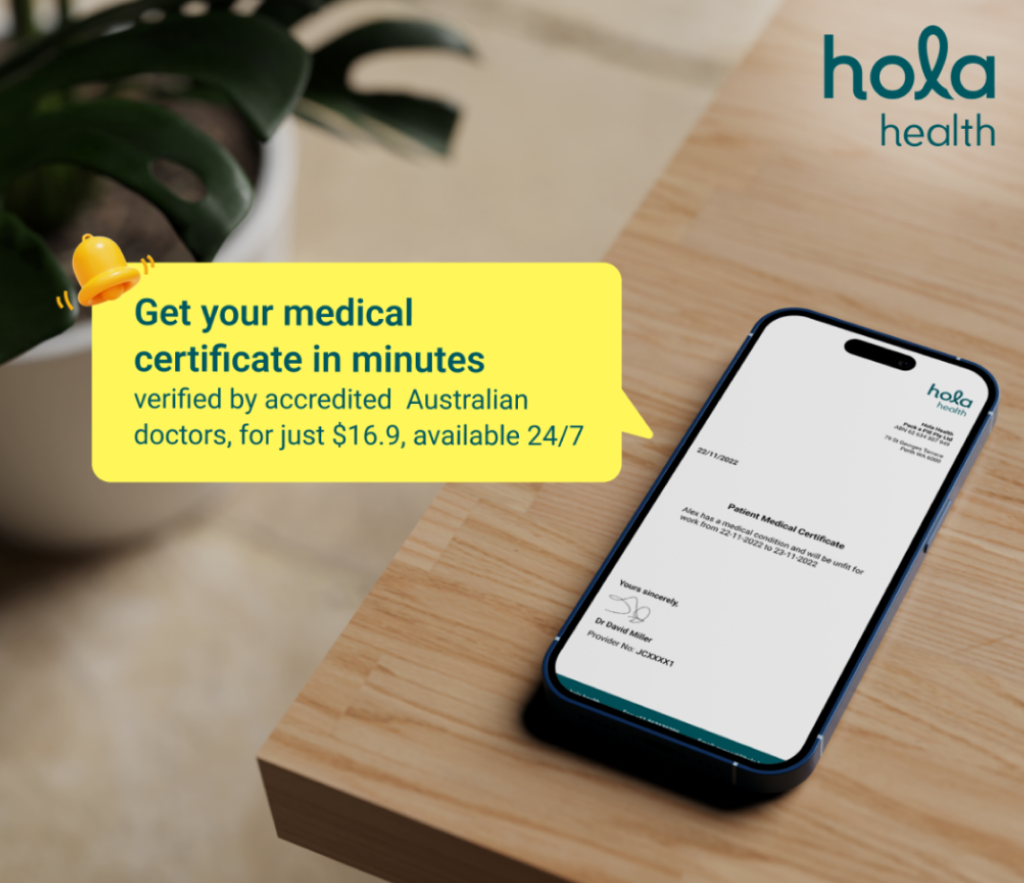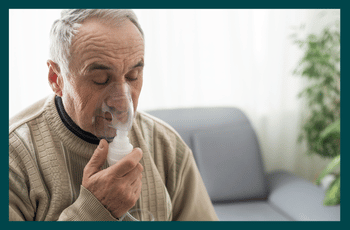Chest Pain Treatment
Get medical advice for chest pain through AHPRA-accredited medical practitioners from anywhere in Australia, available 24/7 and within 15 minutes.
About chest pain

Medically reviewed by Dr. Ammar AL-ANI, MBChB, CCBST, AMC
When to consult a doctor for chest pain?
Knowing when to see a doctor for chest pain can literally be life-saving. Not every chest pain is dangerous, but you should never ignore it. Here’s when you should contact a doctor immediately:
- Sudden, severe chest pain or tightness.
- Pain that feels like pressure, squeezing, or heaviness.
- Chest pain spreading to the arm, neck, jaw, or back.
- Chest pain accompanied by shortness of breath, dizziness, nausea, sweating, or a sense of impending doom.
- Chest discomfort during physical activity or while at rest.
How do I know if chest pain is serious?
It’s important to take any chest pain seriously, as it can sometimes signal a life-threatening condition. Chest pain is considered serious if it feels like pressure, tightness, or squeezing, especially if it radiates to the arm, jaw, back, or neck. If it’s accompanied by shortness of breath, dizziness, nausea, cold sweats, or a sense of impending doom, seek immediate medical help, these may be signs of a heart attack or other urgent issue. Sudden, sharp chest pain with breathlessness could indicate a lung problem. If you’re unsure, it’s always safest to consult a doctor or use telehealth services promptly.
What does chest pain feel like?
Chest pain can feel different for everyone, depending on the cause. It’s often described as a tightness, pressure, heaviness, squeezing, or burning sensation in the chest. Some people feel a dull ache, while others experience a sharp, stabbing pain. It may stay in one spot or radiate to the arms, jaw, neck, back, or shoulders. For some, it comes on suddenly and severely; for others, it builds gradually. Chest pain can also feel like heartburn or indigestion, especially if it’s related to acid reflux. If you’re unsure about the cause, it’s always safest to consult a doctor or telehealth service promptly.
What causes chest pain?
Chest pain can arise from various parts of the body, not just the heart. Common causes include:
- Heart-related causes:
- Angina: Chest tightness from reduced blood flow to the heart.
- Heart attack: Blockage of blood supply to the heart muscle.
- Pericarditis: Inflammation of the sac surrounding the heart.
- Dissecting Aneurysm of the Aorta: Tear in the wall of the aorta.
- Lung-related causes
- Pulmonary embolism: Blood clot in the lungs.
- Pneumonia or pleurisy: Infections or inflammation of the lung or the pleura (the layer that surrounds the lungs).
- Pneumothorax: Collapsed lung (due to the presence of air between the lung and the chest wall) causing sudden sharp pain.
- Digestive causes:
- Acid reflux (GORD): Stomach acid irritating the oesophagus.
- Gallstones: Pain radiating to the chest from the abdomen.
- Musculoskeletal causes:
- Muscle strain or rib inflammation.
- Anxiety or panic attacks: Can mimic heart attack symptoms.
What are the warning signs of a heart attack?
It’s important to remember that heart attack symptoms can vary. Women, older adults, and people with diabetes may have milder or different symptoms, such as jaw pain, breathlessness, or fatigue without chest pain, whereas others might have chest pain and other symptoms.
Common warning signs of a heart attack include:
- Chest pain or discomfort: Often described as pressure, heaviness, squeezing, fullness, or tightness in the centre or left side of the chest.
- Pain radiating to other areas such as the left arm, jaw, neck, back, or stomach.
- Shortness of breath can occur with or without chest pain.
- Nausea or vomiting.
- Cold sweats.
- Dizziness or light-headedness.
- Unusual fatigue: Particularly in women, who may experience extreme tiredness days before.
- A sense of anxiety or impending doom.
When should I call for 000 or an emergency for chest pain?
You should call 000 immediately if you or someone nearby experiences any of the following chest pain symptoms:
- Sudden, severe, or crushing chest pain that feels like pressure, tightness, or squeezing.
- Chest pain lasting more than 10 minutes, even if it comes and goes.
- Pain that spreads to the arm, jaw, neck, back, or shoulders.
- Shortness of breath, dizziness, nausea, vomiting, or cold sweats.
- Fainting or feeling light-headed.
- A sense of impending doom or extreme anxiety.
- Chest discomfort or pain during physical activity.
What does chest pain in teenagers mean?
While chest pain in teenagers can be alarming, it’s often less serious than in adults. In most cases, it’s caused by non-cardiac issues like muscle strain, especially from sports or poor posture. Stress, anxiety, or panic attacks are also common culprits in teens, leading to sharp, brief chest discomfort or tightness.
While heart-related causes are rare in teenagers, it’s important to seek medical advice if chest pain is severe, lasts longer than 10 minutes, happens during activity, or is accompanied by breathlessness, dizziness, or fainting.
What does chest pain in young children mean?
Chest pain in young children is quite common and, in most cases, not related to the heart. The most frequent causes are usually benign and non-cardiac. Common causes include:
- Muscle strain from active play, lifting, or coughing.
- Costochondritis, an inflammation of the cartilage connecting the ribs and breastbone.
- Asthma or other breathing difficulties.
- Acid reflux causing burning chest discomfort.
- Anxiety or stress, which can create tightness or sharp pain.
Serious causes like heart problems, lung infections, or injury are much rarer but should be considered if the pain is severe, constant, occurs with breathlessness, dizziness, fainting, bluish lips, or fever.
How can I get a telehealth appointment in Australia?
Access care from anywhere in Australia 24/7, through Hola Health’s telehealth appointments within minutes. To speak to an online doctor:
- Visit the Hola Health website or app.
- Choose your consultation type.
- Fill in your personal details, Medicare information, and make the payment.
- Connect with an AHPRA-registered online doctor or health practitioner via video consult.
- Discuss your symptoms, concerns, or medical needs during the appointment.
- Receive instant scripts via SMS, and medical certificates or GP referrals via email if approved by the doctor.
Can I get a medical certificate online in Australia?
What are some tips for an effective telehealth appointment?
Here are some practical tips for having an effective telehealth appointment:
- Find a quiet, private space where you won’t be interrupted during your consult.
- Ensure your internet connection is stable for a clear video and audio call.
- List your symptoms, medications, and concerns before the call so you don’t forget anything important.
- Have your Medicare details and any recent test results ready in case your doctor needs them.
- Be honest and clear about your symptoms, including how long they’ve lasted and what makes them better or worse.
- Follow up as recommended, whether it’s a script, referral, or in-person check-up if needed.
Can I get a prescription renewal through telehealth?
What kind of online doctor referrals can I get for chest pain?
If you’re experiencing chest pain, a telehealth doctor can provide appropriate online referrals based on your symptoms and medical history. Some of the common referrals you may receive online through Hola Health or similar telehealth platforms in Australia include:
- Specialist referral for further investigation of heart-related causes or any underlying conditions.
- Pathology referral for blood tests and others.
- Radiology referral for scans.
How can we help?
With Hola Health, you can rest easy regarding your health care management through quick connect to online doctors from anywhere in Australia. Here are some services offered by Hola Health:
- Telehealth appointments 24/7 for quick medical advice or discussion regarding your medical concerns.
- Quick medical certificates from AHPRA-accredited medical practitioners within 15 minutes.
- Online scripts within 15 minutes, 24 hours a day and 7 days a week.
- Online chemist delivery to your doorstep.
- Online bulk-billed mental health care plans at zero cost to you.
- 24/7 Online doctor referrals for further investigation.
Talk to a doctor today
Instantly connect to a registered practitioner within 15 minutes from anywhere in Australia, 24/7 for:
- General consults
- New & repeat scripts
- Referrals
- Medical certificates
- Mental health plans

Read more about chest pain
Access telehealth services
Doctors Brisbane | Doctors Melbourne | Doctors Perth | Doctors Sydney | Doctors near me | Doctors Canberra | Doctors Adelaide | Doctors Darwin | Doctors Hobart
After hours Doctor Brisbane | After hours Doctor Melbourne | After hours Doctor Perth | After hours Doctor Sydney | After hours Doctor Hobart | After hours Doctor Gold Coast | After hours Doctor Canberra | After hours Doctor Adelaide | After hours Doctor Darwin | After hours GP | After hours doctor
Medical certificate | Medical certificate online for work | Medical certificate for school | Medical certificate for Uni | Medical certificate for stress | Carer’s leave certificate | Medical certificate NSW | Medical certificate QLD | Medical certificate VIC | Medical certificate WA | Doctors certificate online | Multi-day Certificate | Sick certificate online | GP medical certificate | Doctors note | Telehealth medical certificate | 2-day medical certificate | Medical certificate for sick leave
Instant scripts | eScript | Online prescriptions | Online prescriptions Sydney | Online prescriptions Melbourne | Online prescriptions Perth | Online prescriptions Brisbane | Online Rx prescription
Online referrals | Blood test referral | X-Ray referral | Pathology referral | Radiology referral | Specialist referral | Gynaecologist referral | Audiology referral | Ophthalmologist referral | Paediatrician referral | Ent specialist referral | Endocrinologist referral | Dermatologist referral | Urologist referral | Gastroenterologist referral
Telehealth appointment | Online Doctor | Bulk Billing Doctors | Doctors on-demand | Instant consult | Covid antiviral | Dial a Doctor | Online GP | Doctor appointment | Bulk-billing doctors | Telehealth pricing | GP online chat | Australian doctor | Web doctor | Home doctor | 24-hour doctor















